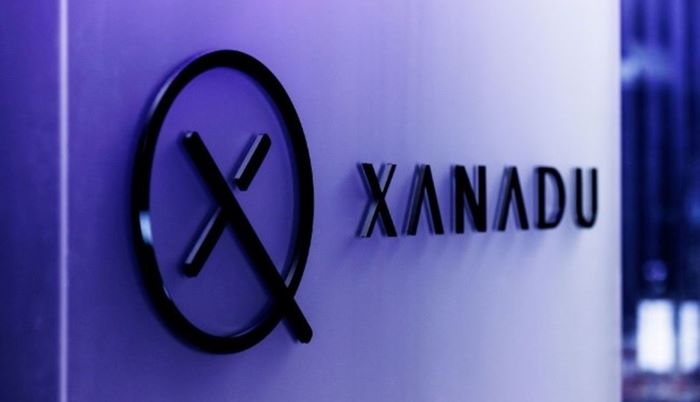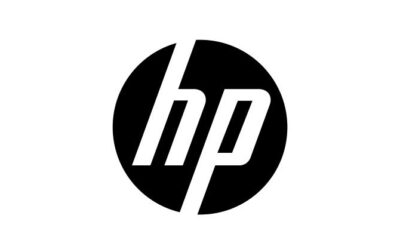Auto
Volkswagen Group And Xanadu Establish Quantum Simulation Program For Battery Materials

- The research program focuses on innovations in quantum algorithms for simulating battery materials, which are needed to potentially impact the design and development of next-generation cells
- The two organizations intend to bring to market resource-efficient quantum algorithms that aim at accelerating Volkswagen’s adoption of quantum computers in the next decade
- The collaboration’s first phase of research has been published in Physical Review A
Volkswagen Group and Canadian quantum technology company Xanadu have established a multiyear research program to improve the performance of quantum algorithms for simulating battery materials. The goal is to reduce computational costs and accelerate Volkswagen’s adoption of quantum computers to develop battery materials that are safer, lighter, and more cost-effective.
Accurate and efficient simulation of battery materials is an industry-wide challenge that could benefit from the arrival of fault-tolerant quantum computers. Existing classical methods, such as density-functional theory, have been the cornerstone of computational chemistry for several decades, but despite their many successes, are reaching limitations on research areas critical for building better batteries.
“With its NEW AUTO strategy, Volkswagen enters new territory, especially when it comes to exploring opportunities along the battery value chain. Next-generation high-performance materials and electrochemical processes are key ingredients of this expedition.” says Dr. Nikolai Ardey, Head of Volkswagen Group Innovation. “Working together with cutting-edge companies like Xanadu is like hopping on a speedboat heading for the horizon: Quantum Computing might trigger a revolution in material science and optimization, key competences to grow our in-house battery expertise.”
Over the past year, Volkswagen and Xanadu have engaged in multi-domain research across material science, computational chemistry, battery technologies, and quantum algorithms that have set the foundation for the program’s long-term research efforts. The joint program aims to tackle industry challenges in battery research by focusing on the development of advanced quantum algorithms for simulating battery materials that will be processed on Xanadu’s next generation fault-tolerant quantum computers. The program’s first research article (published in September 2022: https://journals.aps.org/pra/abstract/10.1103/PhysRevA.106.032428) highlights the first estimation of the resources required to implement a quantum algorithm for simulating a realistic cathode material, dilithium iron silicate.
“At Xanadu, we are pushing the frontiers of quantum computing hardware, software, and algorithms. Our goal in quantum algorithms research is to make quantum computers truly useful. Focusing on batteries is a strategic choice given the demand from industry and the prospects for quantum computing to aid in understanding the complex chemistry inside a battery cell,” said Juan Miguel Arrazola, Head of Algorithms at Xanadu. “We are thrilled to be working alongside the fantastic team at Volkswagen to perform cutting-edge research focused on overcoming the technical obstacles in quantum algorithms that will be necessary to unlock the potential of quantum computing for battery development.”
The program will also investigate additional computational problems in materials discovery where quantum computing has the strongest prospects for massive impact. The partnership with Xanadu supports Volkswagen’s larger objective of becoming a data and software-driven provider of more sustainable mobility and their ambition to be leaders in both battery development and quantum computing applications.
“Our partnership with Xanadu is a great example of Volkswagen’s commitment to leveraging innovative technologies like quantum computing to accelerate towards 100% electric mobility solutions, optimizing our processes wherever possible,” said Dr. Arne-Christian Voigt, Future Research, Volkswagen AG. “We are excited to push the boundaries of material simulation and build on top of the foundational research we have done so far with Xanadu’s quantum algorithms team.”
Earlier this year, Volkswagen AG and the Government of Canada signed a Memorandum of Understanding to promote e-mobility in the country. Both parties agreed to investigate opportunities for Canada to contribute to Volkswagen’s global and regional battery supply chains.
The Canadian government has been investing and continues to invest heavily in quantum technologies. That investment has brought world-class talent to the country, built up the quantum ecosystem and made Canada a leader in the quantum technology space.
About the Volkswagen Group
The Volkswagen Group, with its headquarters in Wolfsburg, is one of the world’s leading automobile manufacturers and the largest carmaker in Europe. Ten brands from seven European countries belong to the Group: Volkswagen Passenger Cars, Audi, SEAT, CUPRA, ŠKODA, Bentley, Lamborghini, Porsche, Ducati and Volkswagen Commercial Vehicles. The passenger car portfolio ranges from small cars all the way to luxury-class vehicles. Ducati offers motorcycles. In the light and heavy commercial vehicles sector, the products range from pick-ups to buses and heavy trucks. Every weekday, 672,800 employees around the globe are involved in vehicle-related services or work in other areas of business. The Volkswagen Group sells its vehicles in 153 countries.
In 2021, the total number of vehicles delivered to customers by the Group globally was 8.9 million (2020: 9.3 million). Group sales revenue in 2021 totaled EUR 250.2 billion (2020: EUR 222.9 billion). Earnings after tax in 2021 amounted to EUR 15.4 billion (2020: EUR 8.8 billion).
About Xanadu
Xanadu is a Canadian quantum technology company with the mission to build quantum computers that are useful and available to people everywhere. Founded in 2016, Xanadu has become one of the world’s leading quantum hardware and software companies. The company also leads the development of PennyLane (@PennyLaneAI), an open-source software library for quantum computing and application development. Visit www.xanadu.ai or follow us on Twitter @XanaduAI.
Source – Volkswagen
-

 Auto2 years ago
Auto2 years agoHonda Marine Debuts All-New BF350 Outboard Company’s First V8 Motor Available Commercially, Flagship Model Offers Premium Power and Unparalleled Performance for Extraordinary Boating Experiences
-

 Auto2 years ago
Auto2 years agoNew Features Further Increase Desirability Of Bentayga Range
-

 Technology2 years ago
Technology2 years agoOracle Partners with TELMEX-Triara to Become the Only Hyperscaler with Two Cloud Regions in Mexico
-

 Auto2 years ago
Auto2 years agoHonda and Acura Electric Vehicles Will Have Access to Largest EV Charging Networks in North America Aided by New Agreements with EVgo and Electrify America
-

 Lifestyle2 years ago
Lifestyle2 years ago2023 Nike World Basketball Festival Brings the Best of Basketball Style, Culture and Community














